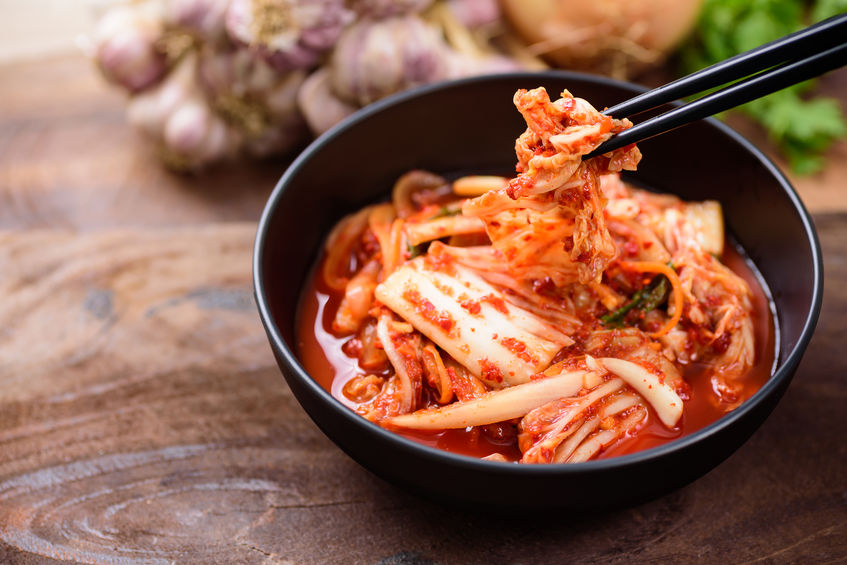By John Salak –
Kimchi, the iconic Korean dish, is the epidemy of an acquired taste. An extremely spicy and fragment mix of fermented vegetables such as cabbage that are seasoned with sugar, salt, onions, garlic, ginger and chili peppers, kimchi has been a mainstay of Korean cuisine for centuries. Now it is fast becoming one of the latest superfoods to ingratiate itself to the palates of European and U.S. consumers thanks, in part, to their growing fascination to probiotics and gut health.
Labeled by one gastro blog as “a celebrity food unlike any other, hitting the funky sour palate from all sides like a bullet,” it is virtually indestructible. “Kimchi almost never spoils.
Prepared correctly and with enough salt, it can ripen for months, even years, until it becomes mukeunji — kimchi that’s so concentrated in flavor that it burns the tongue and tastes wonderful when stewed,” The New York Times reported.
For proponents, there is nothing not to like in Kimchi, especially if they can get used to the taste, It is reputed to help cure hangovers, relieve constipation and even battle back the common cold, among other virtues.
Sichuan University in China just reported that it may even help battle tooth decay. Okay, more studies on pickle’s power to fight cavities is needed. But the Chinese researchers note their findings are in line with previous studies on probiotics that found links between oral health, enamel mineral loss and the consumption of microbes.
Beyond its probiotic credentials and its possible ability to support oral health, kimchi’s benefits start with its low-calorie and nutrient-rich make up. One cup has just 23 calories, 4 grams of carbohydrates, 2 grams of protein and less than a gram of fat. It also contains healthy quantities of Vitamins B6, C, K as well as folate, iron, niacin and riboflavin.
This meld can help enhance immune systems, reduce inflammation, slow the aging process, prevent yeast infections, spur weight loss and support healthy heart conditions, according to Healthline.com. Oh yeah, Healthline adds that it can also help battle certain cancers, fight the common cold, relieve constipation, support gastrointestinal health, improve skin conditions and even ease depression. That’s a lot for a pile of vegetables that’s been left in stew for a few days or more.
It’s little wonder then with this type of advance billing that kimchi has found a warm welcome in the U.S. and Europe. Admittedly, almost half of the approximately $3 billion global kimchi market still comes from South Korea. But the worldwide market is expected to surge to $4.3 billion in the next five years, with the vast majority of the growth coming from the U.S. and Europe.
So is kimchi the Willie Mays, Michael Jordan or Tom Brady of pickles if not superfoods? Not sure. There have been some safety concerns tying kimchi to food poisoning, linking the dish to E.coli and norovirus outbreaks. Healthline.com therefore warns that individuals with compromised immune systems may want to proceed with caution when piling kimchi on their plates.
The Independent newspaper of Britain also threw some cold water on kimchi, noting that while the microorganisms in foods like kimchi are generally safe for most people, they can create problems for a select few. In certain cases they can lead to bloating, headaches and migraines, histamine intolerance, food-borne illness, infections and even antibiotic resistance.
Admittedly, the chance of this happening is rare. In fact, the biggest drawback facing most kimchi consumers is probably dealing with a mouthful or highly spice cabbage.










